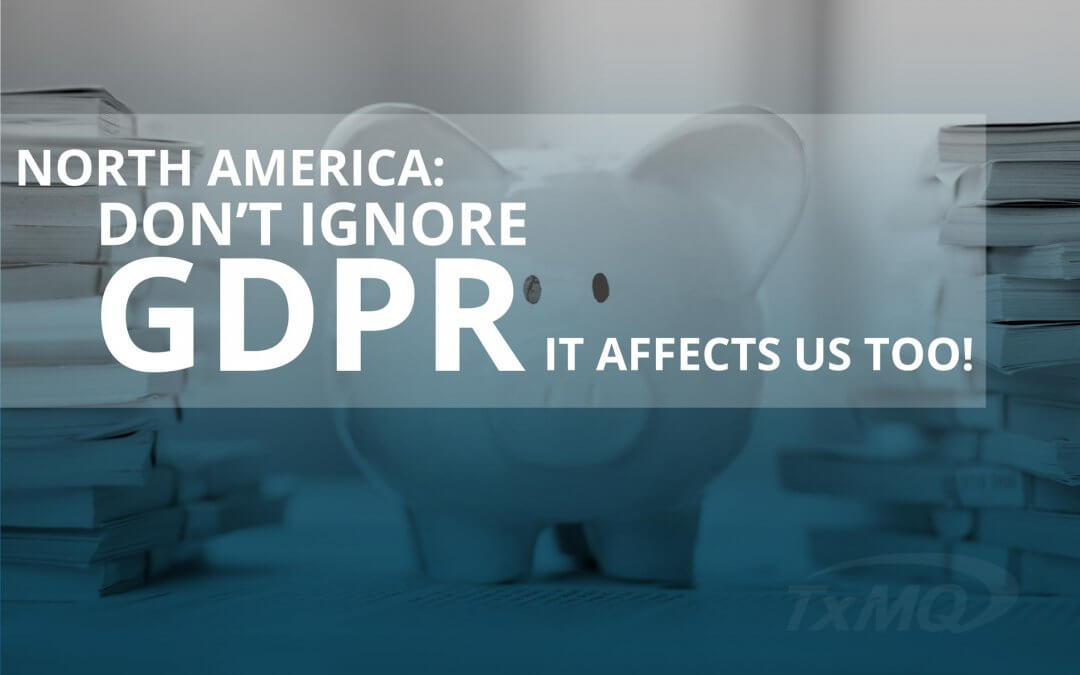Hey, North America – GDPR Means Us, Too!
It’s well documented, and fairly well socialized across North America that on May 25th of 2018, the GDPR, or the General Data Protection Regulation, formally goes into effect in the European Union (EU).
Perhaps less well known, is how corporations located in North America, and around the world, are actually impacted by the legislation.
The broad stroke is, if your business transacts with and/or markets to citizens of the EU, the rules of GDPR apply to you.
For those North American-based businesses that have mature information security programs in place (such as those following PCI, HIPAA, NIST and ISO standards), your path to compliance with the GDPR should not be terribly long. There will be, however, some added steps needed to meet the EU’s new requirements; steps that this blog is not designed to enumerate, nor counsel on.
It’s safe to say that data protection and privacy is a concern involving a combination of legal, governance, process, and technical considerations. Here is an interesting and helpful FAQ link on the General Data Protection Regulation policies.
Most of my customers represent enterprise organizations, which have a far-reaching base of clients and trading partners. They are the kinds of companies who touch sensitive information, are acutely aware of data security, and are likely to be impacted by the GDPR.
These enterprises leverage TxMQ for, among other things, expertise around Integration Technology and Application Infrastructure.
Internal and external system access and integration points are areas where immediate steps can be taken to enhance data protection and security.
Critical technical and procedural components include (but are not limited to):
- Enterprise Gateways
- ESB’s and Messaging (including MQ and FTP – also see Leif Davidsen’s blog)
- Application & Web Servers
- API Management Strategy and Solutions
- Technology Lifecycle Management
- Change Management
- Patch Management
- Asset Management
The right technology investment, architecture, configuration, and governance model go a long way towards GDPR compliance.
Tech industry best practices should be addressed through a living program within any corporate entity. In the long run, setting and adhering to these policies protect your business, and save your business money (through compliance and efficiency).
In short, GDPR has given North America another important reason to improve upon our data and information security.
It affects us, and what’s more, it’s just a good idea.

